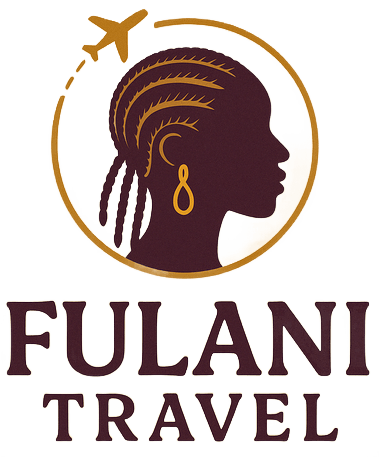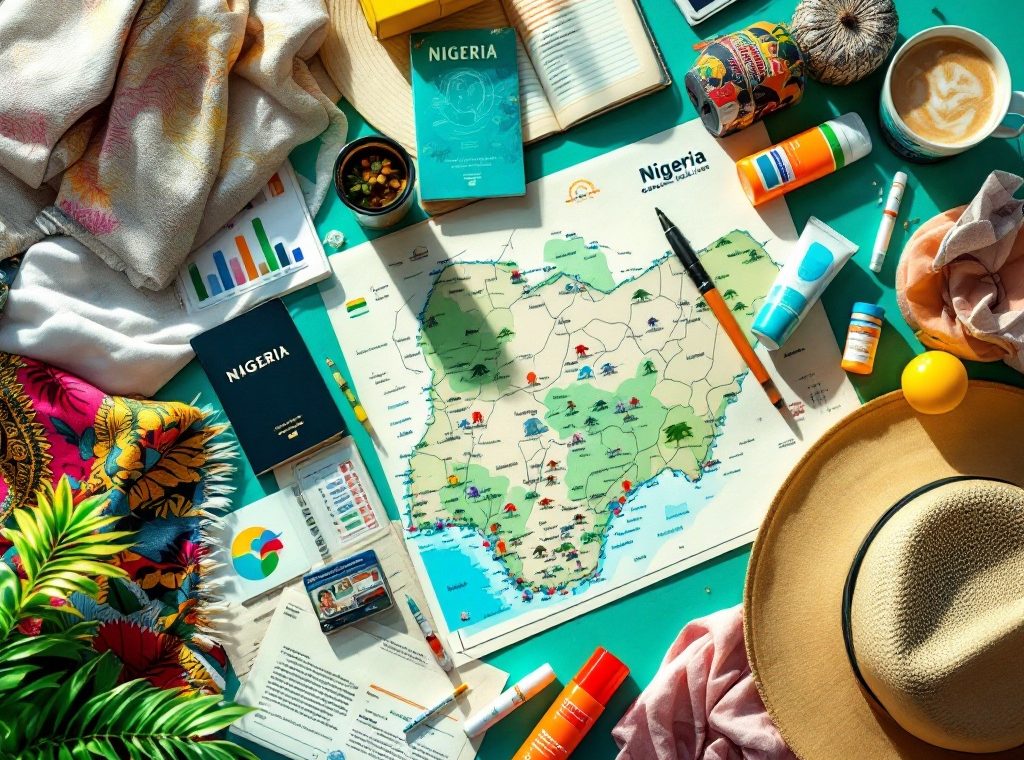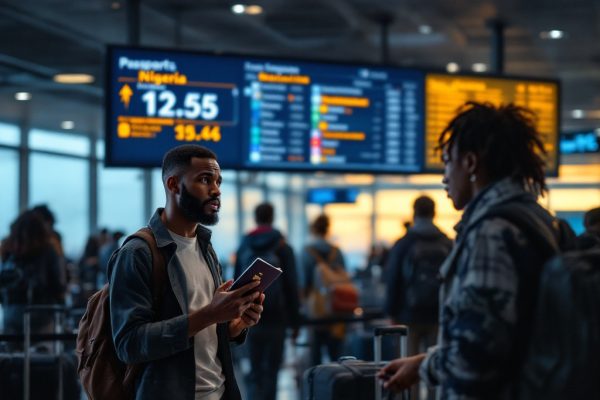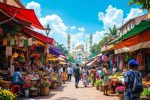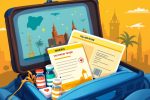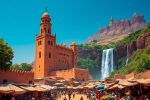What Do I Need to Travel to Nigeria: A Step-by-Step Travel Checklist
Dreaming of a Nigerian adventure? Make your dream a reality with our comprehensive guide! From crucial visa and vaccination requirements to navigating local customs and currency exchange, we cover everything you need for a smooth trip. Discover essential packing tips for Nigeria’s tropical climate and learn how to stay safe and healthy. Start planning your unforgettable journey today!
Important information
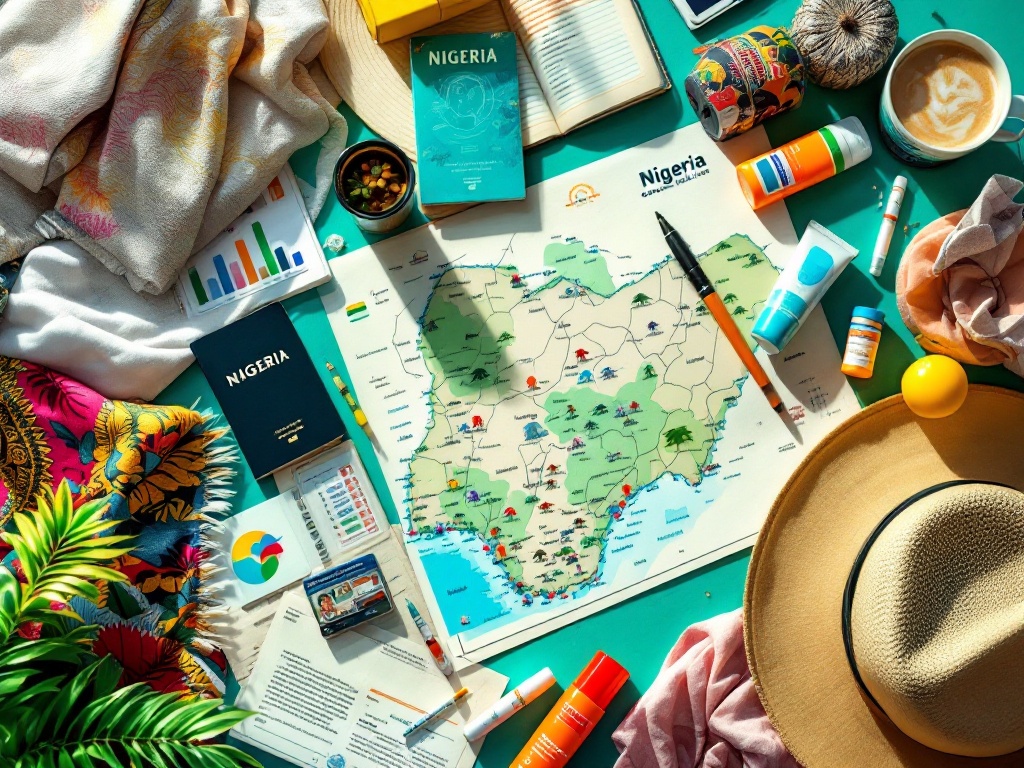
- A valid passport with at least six months validity beyond your planned stay and a visa are required for entry to Nigeria (check specific requirements with the Nigerian embassy based on your nationality).
- Proof of yellow fever vaccination is mandatory. Other recommended vaccinations include polio, measles, and chickenpox. Consult your doctor for a personalized vaccination plan.
- Comprehensive health insurance, including medical evacuation, is strongly advised due to potentially substandard healthcare and upfront payment requirements.
- The Nigerian naira (NGN) is the official currency. Cash is preferred, especially outside major cities. ATMs are available in urban areas. Notify your bank of your travel dates.
- Pack light, breathable clothing, rain gear, and sun protection. Be aware of the wet (April-October) and dry (November-March) seasons and pack accordingly.
Travel Requirements for Nigeria
Planning a trip to Nigeria? Here’s what you need to know:
Passport Validity: Ensure your passport is valid for at least six months beyond your intended stay. This is crucial for a smooth entry process.
Visa Requirements: Depending on your citizenship, a visa may be required. Check with the Nigerian embassy or consulate in your country for specific visa requirements.
Yellow Fever Vaccination: Proof of yellow fever vaccination is mandatory. Ensure you have your vaccination certificate readily available.
Additional Documentation: You might need additional documents such as proof of onward travel or accommodation bookings. Be sure to research specific requirements based on your nationality.
Contact Nigerian Authorities: For specific requirements, contact the nearest Nigerian embassy or consulate. They can provide the most up-to-date information and guidance.
Essential Travel Documents
Traveling to Nigeria? Ensure you have these essential documents:
- A passport valid for at least six months beyond your travel dates.
- A Nigerian visa.
- Proof of yellow fever vaccination.
- Health insurance information.
- Copies of any prescriptions.
- A contact card with emergency numbers (highly recommended).
- Copies of your accommodation and tour reservations.
Visa Requirements
A Nigerian visa is required for entry. Obtain this from a Nigerian embassy or consulate before traveling. Without a visa, you’ll be denied entry. Visas are valid for up to 90 days, but you must arrive within 60 days of issuance.
Passport Validity
For your trip to Nigeria, your passport must be valid for six months beyond your return date. Also, ensure your arrival is within 60 days of your visa’s issuance. This timely arrival is crucial for entering the country.
Yellow Fever Documentation
A valid yellow fever vaccination certificate (WHO yellow card) is required for entry into Nigeria. This card must confirm vaccination within the last ten years. Ensure your card is up-to-date before traveling.
Health and Safety Preparations
Consult your doctor before traveling to Nigeria. Pack smart for your health and safety. Bring sufficient medication and a first-aid kit, along with personal safety items and a reliable travel health guide. Essential vaccinations include yellow fever, polio, and typhoid.Because malaria is a risk, pack prophylactic medication, insect repellent, and a bed net. For everyday ailments, bring antihistamines, motion sickness remedies, cough drops, decongestants, and sleep aids. Disposable gloves and a digital thermometer are also recommended. For added comfort, pack aloe gel, insect bite treatment, and anti-itch cream.Don’t forget hand sanitizer, antibacterial wipes, and water purification tablets. Sunscreen, sunglasses and earplugs are also important for your comfort and safety. Staying hydrated is vital, so bring a reusable water bottle. Stay informed about local health advisories.
Vaccination Requirements
Traveling to Nigeria requires specific vaccinations. Proof of yellow fever vaccination is mandatory. Polio vaccination is also required. Measles and chickenpox vaccinations are recommended. Before your trip, consult your doctor for personalized advice. They can create a vaccination plan tailored to your health and itinerary, as specific destinations within Nigeria may necessitate additional precautions. A healthcare professional can provide expert guidance on necessary vaccinations.
Health Insurance and Medical Evacuation
Before traveling to Nigeria, secure health insurance to cover medical expenses, including emergency evacuations. Nigerian healthcare, particularly in rural areas, can be substandard, and hospitals often demand upfront payments. Comprehensive coverage is therefore strongly advised for all visitors.
Safety Tips and Cultural Considerations
Health and Safety
Prioritize your health and safety during your travels. Discuss vaccinations and malaria prevention with your doctor. Be vigilant about pickpockets, particularly in crowded areas, and avoid displaying valuable items.
Getting Around
Navigating the area is straightforward. Public transportation options include buses, taxis, and ride-hailing services. Due to challenging road conditions, consider hiring a driver, especially for longer journeys. If you choose to drive yourself, exercise caution and observe local driving habits while adhering to traffic regulations.
Respecting Local Customs
Nigerians are known for their hospitality. Dress modestly, especially when visiting religious sites. A handshake is the customary greeting. Demonstrate respect for elders and be considerate of local customs. When in doubt, don’t hesitate to seek guidance.
Addressing Health Risks and Crime
research your destination’s crime rates and stay aware of your surroundings.
Avoid displaying expensive items like jewelry or electronics and secure your valuables.
Consider travel insurance to cover potential medical emergencies and evacuations.
Consult your doctor about recommended vaccinations and necessary food and water safety precautions.
Public Transportation and Road Safety
Navigating Nigerian roads requires caution due to safety concerns like poor conditions and reckless driving. Hiring a driver from a reputable source or using ride-hailing services offers safer alternatives. Be mindful of potential scams and petty theft, especially in crowded areas. Protect your belongings and stay vigilant for a smoother trip. Several transportation options are available:
- buses,
- taxis,
- motorcycles (okadas).
Cultural Etiquette and Customs
When in Nigeria, greetings are essential, and a handshake is customary. Dress modestly, especially in rural areas, and be aware of cultural norms. Always ask permission before taking photographs. Nigeria has diverse ethnic groups and languages, so respecting local customs and traditions is crucial. Visiting local markets and cultural events shows respect and enriches your travel experience. Engaging with locals provides deeper understanding and creates lasting memories. Be mindful of local sensitivities to enhance your Nigerian adventure.
Packing Checklist for Traveling to Nigeria
Pack light, breathable clothing such as cotton shirts, shorts, and trousers. A light jacket or sweater is ideal for cooler evenings, and comfortable walking shoes are essential. Sandals or flip-flops are suitable for casual outings. Protect yourself from the sun with a hat and sunglasses. Don’t forget a raincoat or umbrella for unexpected rain. Dressing modestly is also recommended as a sign of respect for local customs.Pack essential toiletries such as sunscreen, insect repellent, and a first-aid kit with any necessary medications. Remember personal hygiene items like your toothbrush, toothpaste, shampoo, and conditioner. Stay hydrated with a reusable water bottle, and keep hand sanitizer and wet wipes handy.For electronics, bring your phone and charger, along with a universal adapter. A portable charger is helpful for longer trips. A camera is great for capturing memories. You may also need a voltage converter depending on your devices.
Clothing and Accessories
Pack light, breathable clothing for your trip to Nigeria to stay comfortable in the hot climate. A light raincoat or umbrella is recommended, as rain can occur, especially during the rainy season. Don’t forget essentials like sunglasses and a wide-brimmed hat for sun protection. Comfortable walking shoes are crucial for exploring. Leave valuable jewelry at home and consider bringing costume jewelry instead.
Toiletries and Personal Care Items
Packing your toiletries efficiently can make your travel experience smoother. Consider these essential items: travel-sized shampoo, conditioner, lotion, and face wash. Don’t forget oral hygiene essentials: a toothbrush, toothpaste, and mouthwash. Pack shower gel and soap for daily cleansing. For hair care, a brush or comb and hair ties are helpful. Protect your skin with sunscreen and body lotion, and bring along makeup remover wipes for convenience. Other necessities include feminine hygiene products, toilet paper, and any personal medications you require. A small first-aid kit with essentials like bandages, antiseptic wipes, and pain relievers is a smart precaution for minor injuries or ailments.
Electronics and Chargers
Traveling to Nigeria? Ensure your electronics stay powered up by packing these essentials:
- Universal adapter: Nigerian outlets may differ from your home country, so a universal adapter is crucial for charging your devices.
- Portable charger: Keep your phone, laptop, and other electronics charged on the go with a portable charger.
- Device-specific chargers: Don’t forget chargers for devices like your camera, along with extra memory cards and batteries.
With these items, you’ll stay connected throughout your Nigerian adventure.
Understanding Currency and Financial Transactions
Planning your finances for a trip to Nigeria? Here’s what you need to know: the official currency is the Nigerian naira (NGN). Check the current exchange rate before you go. For currency exchange, stick to airports, banks, and official bureaus to avoid scams. ATMs are widely available in major cities, offering easy access to naira. While some upscale establishments accept credit cards, cash is preferred, especially outside urban areas. Notify your bank of your travel dates to prevent any issues with your cards while you’re in Nigeria.
Using the Nigerian Naira
Traveling in Nigeria? The official currency is the Nigerian naira (NGN). Banknotes are available in 5, 10, 20, 50, 100, 200, 500, and 1000 naira denominations. While credit cards are accepted in some city establishments, cash, particularly naira, is essential. Cash is especially important for smaller purchases from street vendors and local markets. To avoid counterfeit currency, exchange your money at official bureaus or banks. For larger purchases in bigger establishments, credit cards might be more convenient.
Tips for Currency Exchange
For the best exchange rates, try official bank branches or established exchange bureaus. Steer clear of airport and hotel exchanges, as they typically charge a premium.
Informing your bank of your travel dates can prevent card complications in Nigeria.
Comparing rates from various sources beforehand ensures you get the most favorable deal.
A prepaid travel card offers a secure way to manage transactions and stick to your budget, giving you better control over your spending.
Weather and Climate Considerations
Packing light is key for Nigeria’s tropical climate. Breathable fabrics are essential for hot days, while a light raincoat is a must during the rainy season (March-August). Evenings during the dry season can be surprisingly cool, so pack a light jacket.
Preparing for Humidity and Heat
Pack light, breathable clothing like cotton or linen for your trip to Nigeria. Don’t forget essentials for sun protection: a wide-brimmed hat, sunglasses, and sunscreen. Staying hydrated is key in Nigeria’s climate, so carry a reusable water bottle and refill it often. Electrolyte supplements or rehydration salts can also be beneficial for replenishing lost minerals.
Seasonal Weather Patterns
Nigeria has two distinct seasons: a wet season and a dry season. The wet season lasts from April to October and brings heavy rainfall. The dry season, from November to March, offers cooler temperatures and lower humidity. Southern Nigeria has two peaks of rainfall, in June and September. Northern Nigeria experiences just one peak, typically in July or August. During the dry season, the Harmattan, a dry, dusty wind from the Sahara Desert, affects Northern Nigeria. It reduces visibility and impacts air quality. This northeasterly trade wind is a key characteristic of the region’s dry season.
